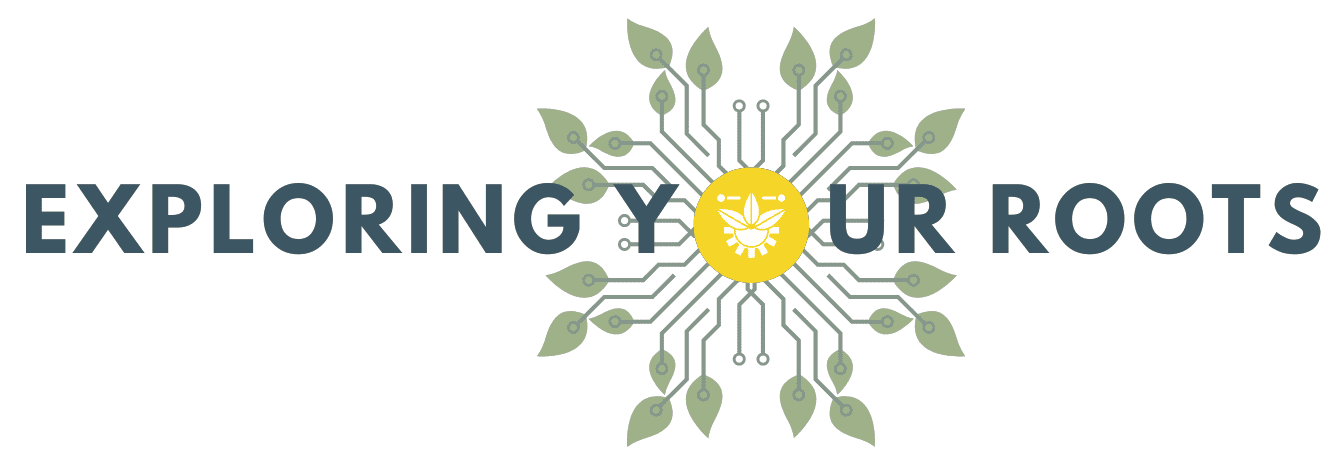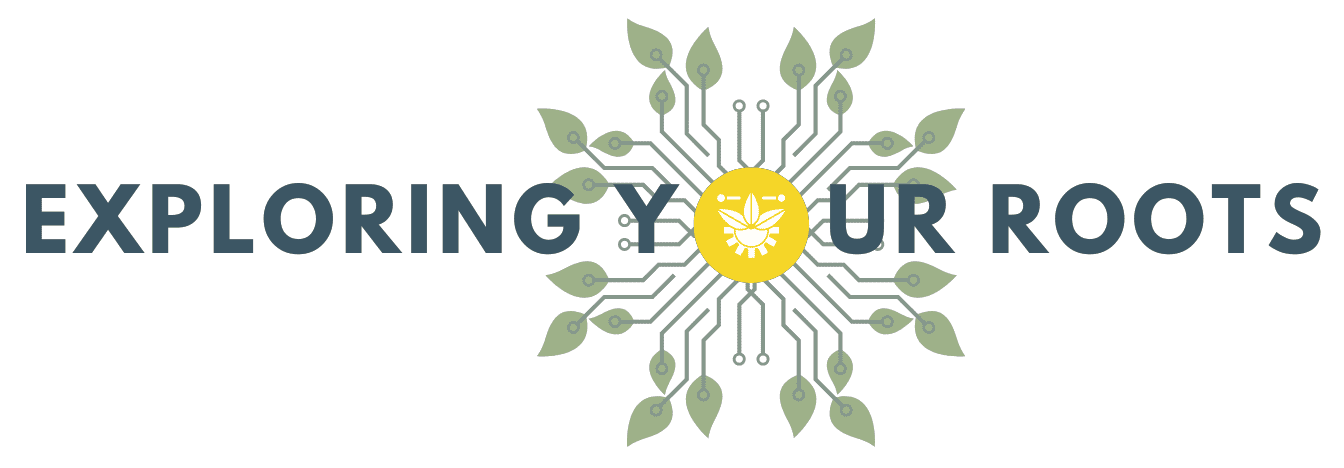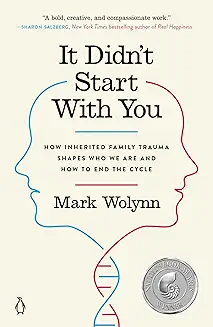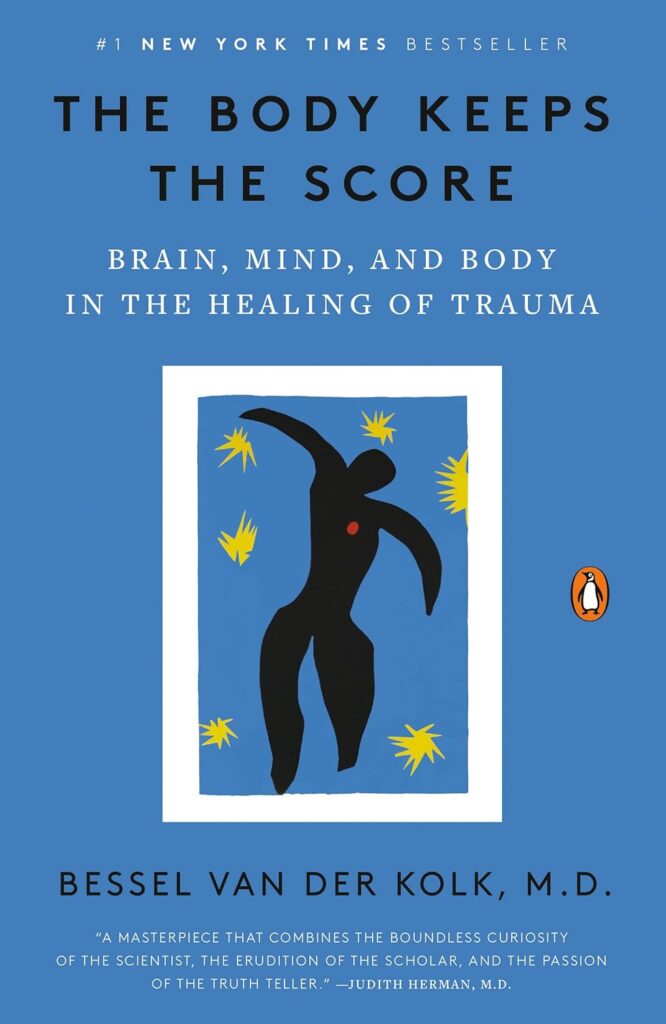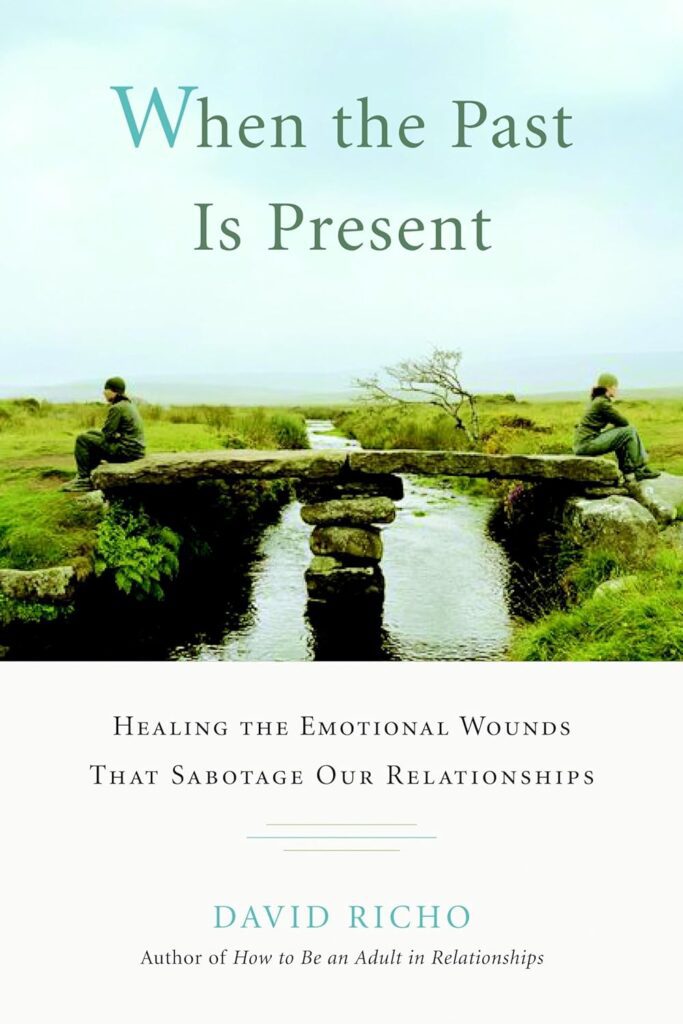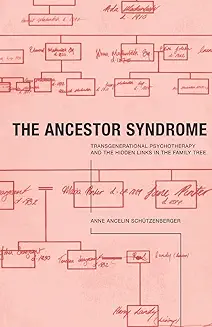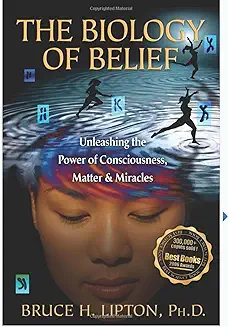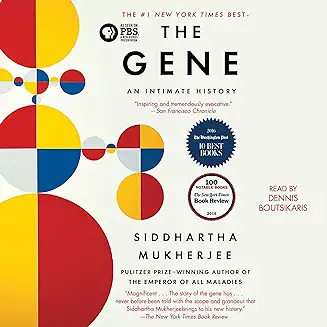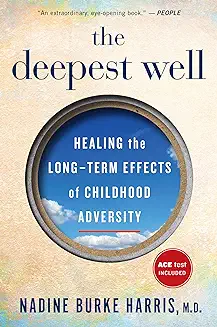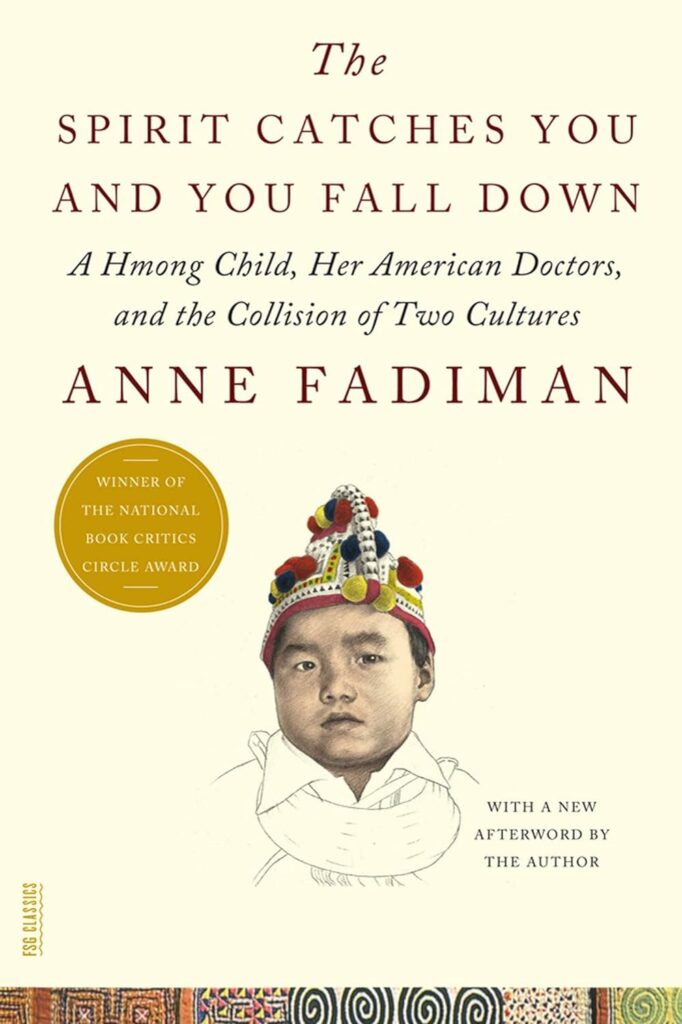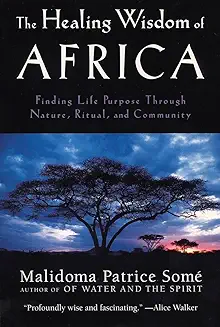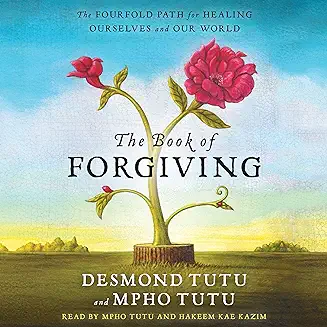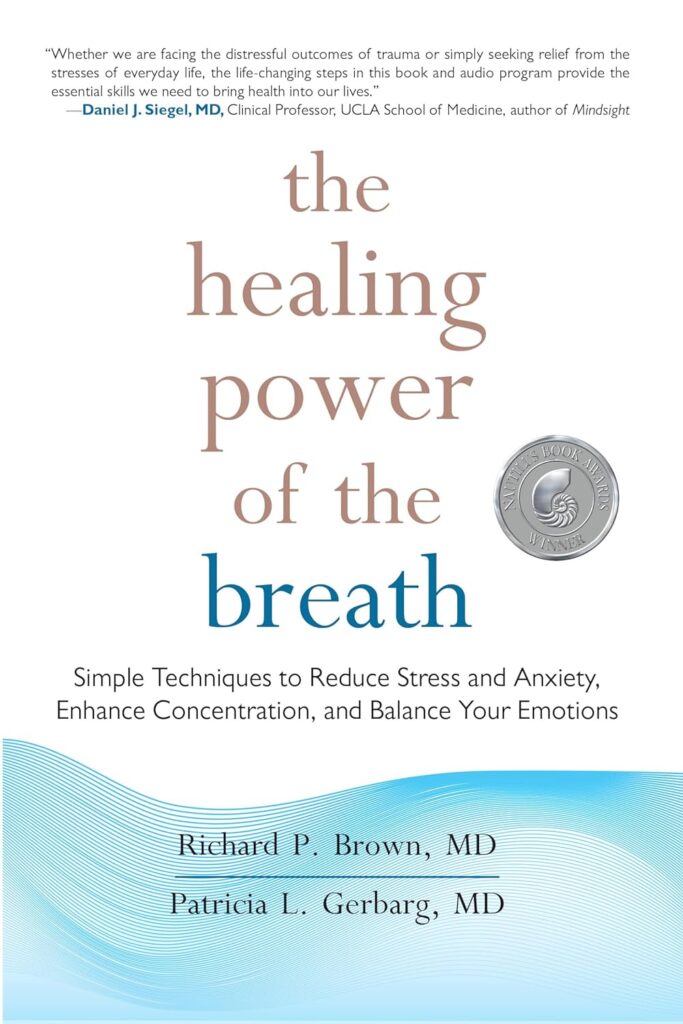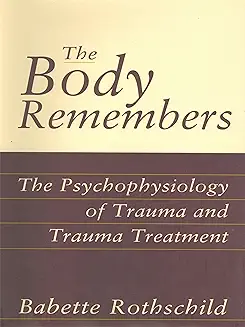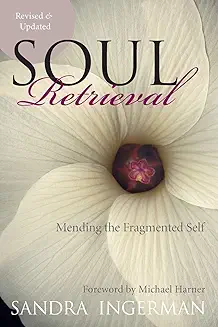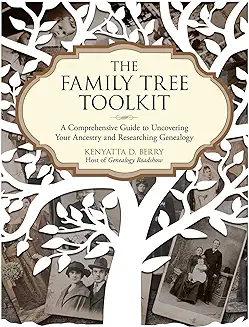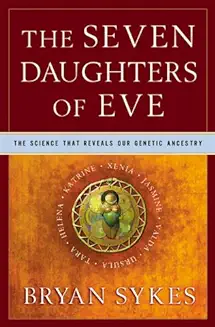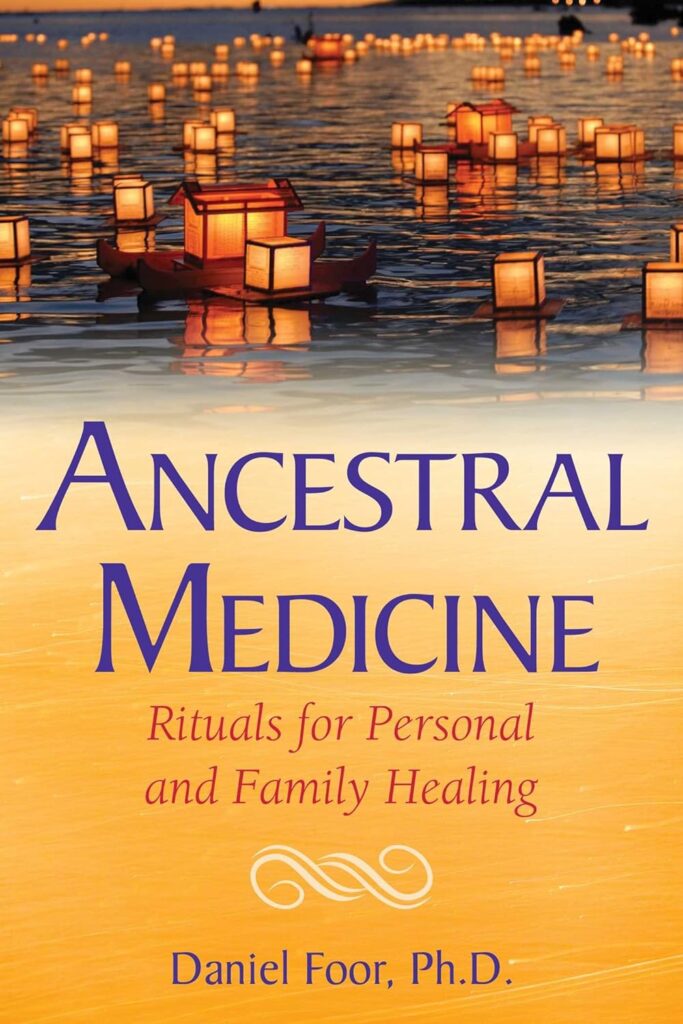What are the best books on ancestral trauma and epigenetics and how can they help you understand and heal generational wounds? In this article we’ll review 16 books that explore ancestral trauma and provide tools for recovery. For each book, we will provide a brief summary, a review, and a key takeaway. Let’s get started!
First, What Is Ancestral Trauma?
Ancestral trauma is a term that refers to the trauma that occurred many years ago yet remains embedded as genetic programming in the collective unconscious. It is transmitted from one generation to the next via epigenetic inheritance. This means that our ancestors’ experiences of war, famine, oppression, violence, or abuse can affect our physical, mental, emotional, and spiritual health today.
According to a study by the University of Zurich, more than 70% of people have at least one ancestor who experienced a major trauma. Another study by the University of California found that the descendants of Holocaust survivors have altered stress hormone levels, indicating that they inherited the trauma of their grandparents.
Ancestral trauma can manifest in various ways, such as chronic pain, anxiety, depression, addiction, phobias, low self-esteem, relationship issues, or spiritual disconnection. It can also influence our beliefs, values, behaviors, and choices in life. For example, if your ancestors were persecuted for their religious or ethnic identity, you may feel insecure or ashamed of your own identity. If your ancestors were enslaved or oppressed, you may struggle with power or authority issues. If your ancestors were victims or perpetrators of violence, you may have difficulty with trust or intimacy.
Why Does Understanding Generational Trauma Matter?
Ancestral trauma is not only a personal issue but also a collective one. It affects our entire society and culture. Generational trauma shapes our history and our present. And it inevitably influences how we relate to ourselves, others, and the world.
Therefore, healing ancestral trauma is not only beneficial for ourselves but also for our future generations and humanity as a whole. By healing our ancestral wounds, we can free ourselves from the past and create a new reality based on love, peace, and harmony.
One of the ways to heal ancestral trauma is to read books that can help us understand and overcome it. Reading books can provide us with valuable insights, guidance, and inspiration. It can also help us connect with our ancestors and honor their stories.
Best Books for Recognizing Ancestral Trauma
The first step to healing ancestral trauma is to recognize its signs and symptoms in ourselves and our family. Here are some of the best books on ancestral trauma and epigenetics that can help you identify and acknowledge your ancestral wounds.
As an Amazon Associate we earn from qualifying purchases.
It Didn’t Start with You: How Inherited Family Trauma Shapes Who We Are and How to End the Cycle by Mark Wolynn
Summary: This book explains how inherited family trauma can affect our lives in various ways. It also offers a four-step process to heal our ancestral trauma and break the cycle of suffering.
Review: This book is based on the author’s personal and professional experience as a psychotherapist and a director of the Family Constellation Institute. It is well-researched and easy to read. It provides many examples and exercises to help readers apply the concepts and techniques.
Key takeaway: We can heal our ancestral trauma by becoming aware of it, connecting with its source, separating from it, and transforming it.
The Body Keeps the Score: Brain, Mind, and Body in the Healing of Trauma by Bessel van der Kolk
Summary: This book explores how trauma affects our brain, body, mind, and relationships. It also presents various healing modalities, such as neurofeedback, yoga, meditation, and EMDR (Eye Movement Desensitization and Reprocessing), that can help us recover from trauma.
Review: This book is written by a renowned psychiatrist and trauma expert who has worked with thousands of trauma survivors. It is comprehensive and informative. It combines scientific evidence with clinical practice and personal stories.
Key takeaway: Trauma is not only a psychological issue but also a physiological one. We need to address both aspects to heal from trauma.
When the Past Is Present: Healing the Emotional Wounds that Sabotage Our Relationships by David Richo
Summary: This book explores how our past experiences, especially those from our childhood, can affect our present relationships. Richo explains how we unconsciously repeat patterns of behavior, emotions, and expectations that were formed in our early years, and how these can cause us to sabotage our happiness and intimacy with others. He also offers practical tools and exercises to help us heal our wounds, free ourselves from the past, and create healthy and fulfilling relationships.
Review: I found this book to be very insightful and helpful for anyone who wants to understand themselves and their partners better. Richo writes in a clear and compassionate way, using examples from his own life and his clients’ stories. He shows how we can recognize and transform our unconscious projections, attachments, and fears that prevent us from being fully present and authentic with others. He also provides a lot of useful tips and practices to cultivate mindfulness, self-compassion, and forgiveness in our relationships.
Key Takeaway: The main message of this book is that we can heal our emotional wounds and create more loving and satisfying relationships by becoming aware of how our past influences our present. By doing so, we can also discover our true self and our potential for growth and happiness.
The Ancestor Syndrome: Transgenerational Psychotherapy and the Hidden Links in the Family Tree by Anne Ancelin Schutzenberger
Summary: This book introduces the concept of transgenerational psychotherapy, which is a method of exploring and resolving the hidden links between our present problems and our ancestors’ unresolved issues. It also shows how these links can be revealed through genograms (family trees), psychodrama (role-playing), and psychogenealogy (family history).
Review: This book is written by a pioneer in transgenerational psychotherapy who has worked with many clients from different cultures and backgrounds. It is insightful and intriguing. It reveals how our family history can influence our personality, behavior, health, and destiny.
Key takeaway: We are not only influenced by our own experiences but also by those of our ancestors. We need to uncover and heal these influences to free ourselves from their effects.
Best Books on Ancestral Trauma and Epigenetics that Delve into the Science
The second step to healing ancestral trauma is to understand the scientific theories and research that support its existence. Here are some of the best books on ancestral trauma and epigenetics that can help you learn more about the science behind ancestral trauma.
As an Amazon Associate we earn from qualifying purchases.
The Biology of Belief: Unleashing the Power of Consciousness, Matter and Miracles by Bruce Lipton
Summary: This book explains how our beliefs and perceptions can affect our biology and reality. It also reveals how epigenetics, which is the study of how environmental factors can alter gene expression, can explain how ancestral trauma can be passed down through generations.
Review: This book is written by a former cell biologist and a pioneer in epigenetics. It is fascinating and enlightening. It challenges the conventional view of genetics and shows how we can change our biology and reality by changing our beliefs and perceptions.
Key takeaway: We are not victims of our genes but masters of our fate. We can influence our gene expression and inheritance by changing our environment and consciousness.
The Gene: An Intimate History by Siddhartha Mukherjee
Summary: This book traces the history of genetics from its origins to its present and future. It also explores the ethical, social, and personal implications of genetic discoveries and technologies.
Review: This book is written by a Pulitzer Prize-winning author and a cancer physician. It is captivating and informative. It combines historical narratives with scientific explanations and personal stories.
Key takeaway: Genetics is not only a scientific field but also a human endeavor. It reflects our curiosity, creativity, and responsibility.
The Deepest Well: Healing the Long-Term Effects of Childhood Adversity by Nadine Burke Harris
Summary: This book examines how childhood adversity, such as abuse, neglect, or poverty, can affect our health and well-being throughout our lives. It also introduces the concept of ACEs (Adverse Childhood Experiences), which are a measure of childhood trauma, and how they can increase the risk of various diseases and disorders.
Review: This book is written by a pediatrician and a public health advocate who has worked with many children and families affected by trauma. It is compelling and compassionate. It provides scientific evidence with clinical practice and personal stories.
Key takeaway: Childhood trauma is not only a psychological issue but also a public health one. We need to prevent, screen, and treat it to improve our health and society.
Best Books for Cultural and Historical Perspectives
The third step to healing ancestral trauma is to appreciate the cultural and historical perspectives that shape our understanding and response to it. Here are some of the best books on ancestral trauma and epigenetics that can help you explore how different cultures and societies perceive and address generational trauma.
As an Amazon Associate we earn from qualifying purchases.
The Spirit Catches You and You Fall Down: A Hmong Child, Her American Doctors, and the Collision of Two Cultures by Anne Fadiman
Summary: This book tells the story of Lia Lee, a Hmong child who suffers from epilepsy, and her American doctors who try to treat her. It also examines the cultural clash between the Hmong refugees from Laos and the American medical system.
Review: This book is written by a journalist and a cultural anthropologist who has spent years researching the Hmong culture and history. It is captivating and empathetic. It provides a balanced and nuanced perspective on both sides of the conflict.
Key takeaway: Culture plays a vital role in how we understand and treat illness. We need to respect and communicate with each other to find common ground.
The Healing Wisdom of Africa: Finding Life Purpose Through Nature, Ritual, and Community by Malidoma Patrice Somé
Summary: This book shares the healing wisdom of the Dagara people from West Africa. It also explains how their rituals, practices, and traditions can help us reconnect with nature, spirit, and community.
Review: This book is written by an initiated elder of the Dagara tribe who has studied in both Western and African universities. It is inspiring and authentic. It provides a rich and deep insight into the African worldview and spirituality.
Key takeaway: Healing is not only an individual process but also a collective one. We need to reconnect with our ancestors, nature, spirit, and community to heal ourselves and our world.
The Book of Forgiving: The Fourfold Path for Healing Ourselves and Our World by Desmond Tutu and Mpho Tutu
Summary: This book offers a fourfold path for healing ourselves and our world from trauma, violence, or injustice. The four steps are telling the story, naming the hurt, granting forgiveness, and renewing or releasing the relationship.
Review: This book is written by a Nobel Peace Prize laureate and his daughter who have both experienced and witnessed trauma in their lives. It is powerful and compassionate. It provides practical guidance and spiritual wisdom for forgiveness.
Key takeaway: Forgiveness is not only a moral duty but also a healing tool. We need to forgive ourselves and others to free ourselves from pain and resentment.
Best Books on Ancestral Trauma and Epigenetics That Explore Healing Modalities
The fourth step to healing ancestral trauma is to explore various healing modalities that can help us address it. Here are some books that can help you find various healing modalities that can help us address it. Here are some of the best books on ancestral trauma and epigenetics that can help you discover and practice some of these modalities.
As an Amazon Associate we earn from qualifying purchases.
The Healing Power of the Breath: Simple Techniques to Reduce Stress and Anxiety, Enhance Concentration, and Balance Your Emotions by Richard P. Brown and Patricia L. Gerbarg
Summary: This book teaches how to use breathing techniques to calm the mind, body, and emotions. It also explains the science behind how breathing affects our nervous system, brain, and hormones.
Review: This book is written by two psychiatrists who have used breathing techniques to treat many patients with trauma, anxiety, depression, and other conditions. It is clear and practical. It provides step-by-step instructions and audio guides for various breathing exercises.
Key takeaway: Breathing is a powerful tool to regulate our mood, energy, and health. We can use breathing techniques to reduce stress and anxiety, enhance concentration, and balance our emotions.
The Body Remembers: The Psychophysiology of Trauma and Trauma Treatment by Babette Rothschild
Summary: This book explores how trauma affects the body and how to treat it using somatic approaches. It also provides tools and techniques for therapists and clients to work with the body in a safe and effective way.
Review: Written by a psychotherapist and a trauma expert who has trained many professionals in somatic trauma therapy, this book is comprehensive and informative. It combines theoretical knowledge with clinical practice and case examples. Key takeaway: The body remembers what the mind forgets. We need to work with the body to heal from trauma.
Soul Retrieval: Mending the Fragmented Self by Sandra Ingerman
Summary: What is soul retrieval? It is the shamanic practice of restoring the lost parts of the soul that have been separated due to trauma or illness. The author guides readers through the steps of how to perform soul retrieval for themselves or others.
Review: Ingerman is a shamanic practitioner and a teacher who has performed thousands of soul retrievals. This book offers an inspiring and transformative spiritual perspective of trauma and healing.
Key takeaway: Trauma can cause soul loss, which can lead to physical, mental, emotional, or spiritual problems. We can heal our soul by retrieving its missing parts and integrating them into our whole self.
Best Books for Researching and Working with Ancestral Trauma
The fifth step to healing ancestral trauma is to read books that can help us understand and heal it. Here are some books that can help you explore and heal your ancestral trauma.
As an Amazon Associate we earn from qualifying purchases.
The Family Tree Toolkit: A Comprehensive Guide to Uncovering Your Ancestry and Researching Genealogy by Kenyatta D. Berry
Summary: This book provides a comprehensive guide to researching your family history and genealogy. It also offers tips and resources for finding and accessing various records, such as census, military, immigration, and DNA.
Review: This author is a genealogist and a host of the PBS series Genealogy Roadshow. It is helpful and user-friendly. It covers all the basics and more of genealogy research.
Key takeaway: Researching your family tree can help you discover your roots, identity, and heritage. It can also help you uncover your ancestral stories, secrets, and traumas.
The Seven Daughters of Eve: The Science That Reveals Our Genetic Ancestry by Bryan Sykes
Summary: This book reveals how DNA testing can trace our maternal ancestry back to seven women who lived thousands of years ago in Europe. It also tells the stories of these women and their descendants.
Review: As a geneticist and pioneer in DNA testing, Sykes weaves a fascinating and engaging read by melding science with history and storytelling.
Key takeaway: DNA testing can help us find out where we come from, who we are related to, and what we have inherited from our ancestors.
Ancestral Medicine: Rituals for Personal and Family Healing by Daniel Foor
Summary: This book teaches how to connect with our ancestors and seek their guidance, support, and healing. It also explains how to heal our ancestral lineages from trauma, illness, or disharmony.
Review: Written by a psychologist and a teacher of ancestral healing, the author has studied with various indigenous cultures and traditions. It is profound and practical. It provides a step-by-step process for ancestral healing work.
Key takeaway: Connecting with our ancestors can help us heal ourselves and our family. We can also help our ancestors heal their wounds and restore their blessings.
Ancestral trauma is a complex and challenging issue that affects many aspects of our lives. However, it is not impossible to heal it. By reading books that can help us understand and overcome it, we can gain valuable insights, guidance, and inspiration. We can also learn from different perspectives, modalities, and practices that can assist us in our healing journey. We hope that this article has provided you with some useful information and resources for healing your ancestral trauma. If you have any questions, comments, or feedback, please feel free to share them with us. We would love to hear from you.
For more on these topics, check out these posts:
Epigenetic Inheritance: It Didn’t Start With You Book Review
Ancestral Trauma: What It Tells You About Your Life
Exploring Epigenetics: Unlocking the Secrets of Gene Expression
As an Amazon Associate we earn from qualifying purchases.
